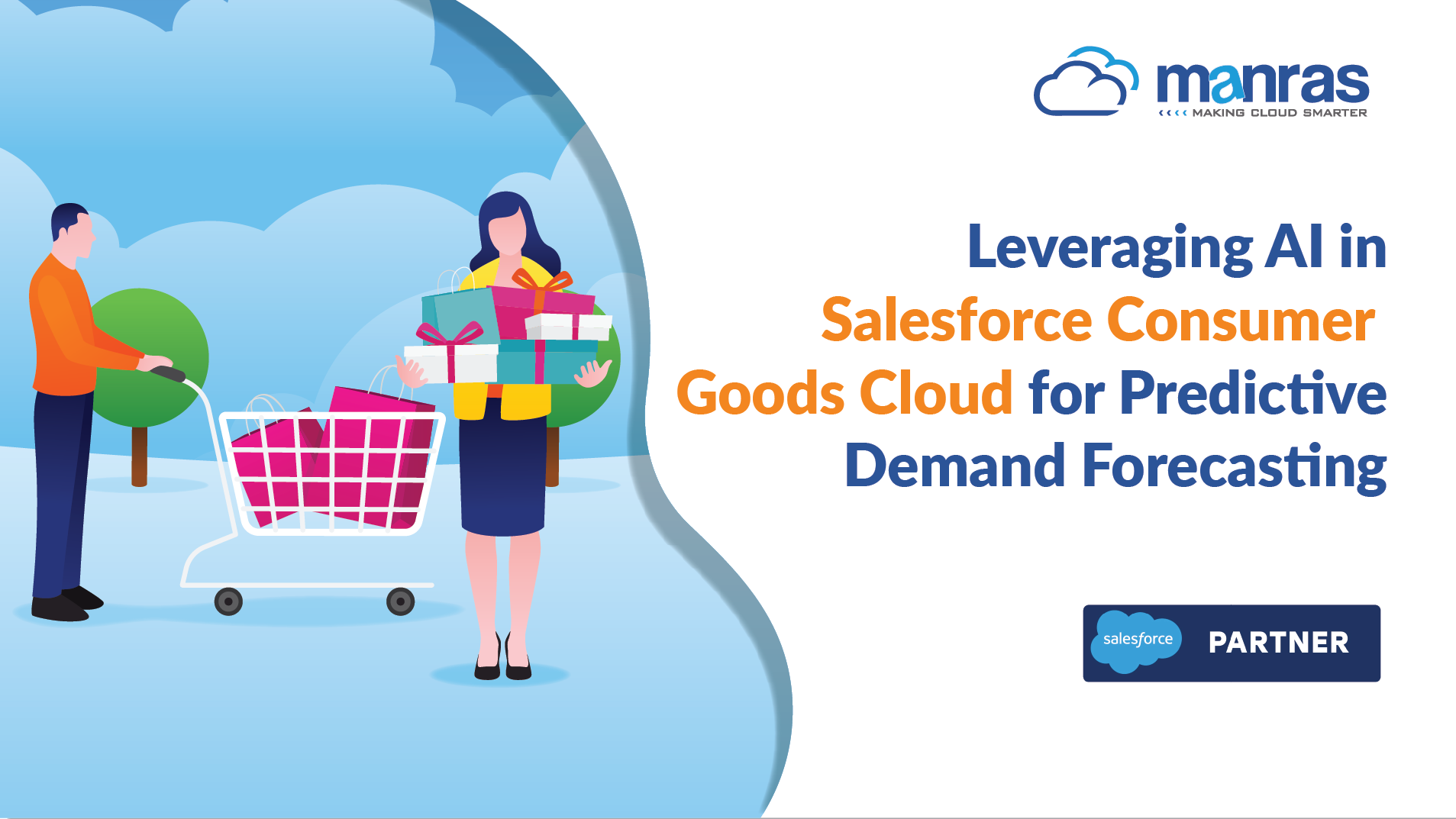
Leveraging AI in Salesforce Consumer Goods Cloud for Predictive Demand Forecasting
Demand forecasting involves predicting the future demand for a particular product or service using historical data, consumer trends, and analytical techniques. By doing so, businesses can gain valuable insights into consumer behavior and market dynamics, helping them make better decisions regarding production, inventory management, and marketing strategies. Salesforce’s Consumer Goods Cloud offers several features for optimizing sales strategies with AI in consumer goods industry.
In this article, we will explore what is predictive demand forecasting, look at its importance, and provide insights on leveraging AI for demand forecasting in consumer goods industry.
What is Predictive Demand Forecasting?
Predictive demand forecasting in the consumer goods industry involves anticipating future customer demand for existing products or services and determining necessary adjustments or new offerings to satisfy those anticipated needs. However, accurately predicting consumer preferences, quantities, and timing presents a formidable challenge. For instance, decisions may involve preparing for seasonal spikes in demand or responding to sudden shifts in market trends. To ease this process, using Salesforce AI solutions for consumer trends prediction, like Consumer Goods Cloud, can provide invaluable support, enabling businesses to refine their forecasts and make data-driven decisions more effectively.
What Makes Predictive Demand Forecasting Important?
Here is why predictive demand forecasting is crucial across various aspects of the consumer goods industry:
Supply Chain Management
Predictive demand forecasting is essential for maintaining optimal inventory levels and mitigating the risks of stockouts or overstocking. Businesses can optimize inventory management by accurately predicting demand improving cash flow, customer satisfaction, and overall supply chain efficiency.
Production Planning
Accurate predictive demand forecasting enables businesses to plan their production schedules effectively to meet anticipated demand. This ensures the availability of necessary resources, materials, and workforce to fulfill customer orders efficiently. Proper production planning minimizes disruptions, reduces costs, and enhances operational efficiency.
Marketing and Sales Strategies
Predictive demand forecasting provides valuable insights into market and consumer trends, empowering businesses to develop targeted marketing and sales strategies. By aligning marketing efforts with forecasted demand, businesses can optimize their marketing budgets and maximize return on investment.
Financial Planning and Budgeting
Accurate predictive demand forecasting supports informed financial decision-making by anticipating future demand and revenue. This enables businesses to create realistic budgets, allocate resources effectively, and plan for future investments, ensuring long-term sustainability and growth.
Risk Management
Predictive demand forecasting helps identify potential market risks and challenges, allowing businesses to develop proactive strategies to mitigate them. By anticipating fluctuations in demand, companies can implement contingency plans to minimize the impact on operations, enhancing business resilience in dynamic market conditions.
How To Leverage AI for Demand Forecasting in Consumer Goods Industry?
Let’s look at how to effectively leverage AI in Salesforce Consumer Goods Cloud for Predictive Demand Forecasting:
Enhanced Retail Activity Optimization (RAO)
Salesforce’s Einstein AI integrates Retail Activity Optimization (RAO) capabilities into the Consumer Goods Cloud. By analyzing various data points, such as store sales data and customer feedback, RAO helps sales reps identify high-performing stores and prioritize their visits accordingly, optimizing resource allocation.
Efficient Route Planning with Einstein AI and Google Maps
In collaboration with Google Maps, Salesforce’s Einstein AI assists sales representatives in finding the most efficient routes to execute their store visits. This ensures optimal resource utilization and minimizes travel time, enhancing productivity.
Automated Planogram Audits
Einstein AI enables automated audits of planogram levels, including on-shelf availability, product facings, and shelf share. By automating these processes, businesses can ensure compliance with merchandising standards and improve product visibility in stores.
Product Recognition with Einstein’s Vision
Salesforce’s Einstein AI Vision capability can accurately identify products on shelves from images, eliminating the need for manual verification by sales representatives. This streamlines inventory management processes and improves accuracy in tracking product availability.
Insight Discovery with Einstein Discovery
Salesforce’s Einstein Discovery empowers businesses to uncover relevant patterns in in-store data, regardless of whether it’s within Salesforce or not. This enables businesses to gain valuable insights into consumer behavior and market trends, facilitating more informed decision-making in demand forecasting and sales optimization strategies.
Conclusion
In conclusion, leveraging AI in Salesforce Consumer Goods Cloud for predictive demand forecasting offers immense benefits for businesses in the consumer goods industry. Companies can enhance their demand forecasting processes and drive business growth by harnessing the power of Einstein AI capabilities, such as Retail Activity Optimization, efficient route planning, and product recognition.
For businesses seeking expert guidance and support in implementing AI solutions within the Salesforce Consumer Goods Cloud, Manras is a trusted Salesforce consultant certified in delivering tailored solutions and maximizing the potential of AI-driven technologies. With Manras’s expertise, businesses can unlock the full potential of predictive demand forecasting and stay ahead in today’s dynamic market landscape.



